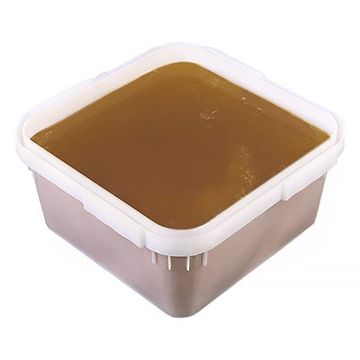Altai honey with St. John's wort

+7 (961) 993-26-19
- Cup container 15, 33 kilos
- Plastic buckets 1.5, 3, 4.5 kilos
Ingredients: natural honey, hypericum extract.
Plant extracts are obtained by low-temperature technologies, allowing to fully extract and preserve the biologically active substances of plants. The product is made on the basis of high-quality Altai honey. The combination of extracts with natural honey doubles the strength and improves the availability of biologically active substances for the body, which allows to achieve the maximum healing effect.
Honey is the richest source of nutrient nutrients that have beneficial effects on human health, is quickly and completely absorbed by the body, has a restorative, anti-inflammatory and tonic effect.
St. John's wort - increases the body's defenses. Restores strength after heavy physical and mental stress. In herbal medicine are recommended for fatigue, physical and mental fatigue, transferred infectious and debilitating diseases, colds.
Such widespread use is due to the complex chemical composition of the plant.
This plant contains hypericin and pseudohypericin - dyes, flavone glycosides - hyperoside, quercetrin, rutin, a greenish essential oil, which contains terpenes, sesquiterpenes, carotene, isovaleric acid esters, tannins, choline and cetyl alcohol. St. John's wort contains resinous substances and traces of nicotinic acid, as well as ascorbic acid. The chemical composition of the plant includes macrocells (mg / g): iron - 0.11, potassium - 16.8, calcium - 7.3 and magnesium - 2.2, as well as trace elements (μg / g): copper - 0.34 , zinc - 0.71, manganese - 0.25, cobalt - 0.21, chromium - 0.01, molybdenum - 5.6, aluminum - 0.02, nickel - 0.18, lead - 0.08, boron - 40.4, selenium - 5.0, strontium - 0.1 and cadmium - 7.2.
Molybdenum, which also accumulates in this plant, has a beneficial effect, inhibiting fluoride and inhibiting the development of caries.
Due to the presence of so many chemical elements in the plant, St. John's wort has a therapeutic effect in various diseases.
St. John's wort is a remedy for gallstone disease, chronic kidney and liver diseases, as well as some gynecological diseases. In addition, it has analgesic, diuretic and anthelmintic effects. Its infusion is also used for heart diseases, rheumatism, migraines, flu and colds, chronic gastritis and colitis, stomach and duodenal ulcers with high acidity, inflammation of the bladder, hemorrhoids. And the so-called St. John's wort oil is an effective remedy for periodontal disease, stomatitis, gingivitis, pharyngitis and many other diseases.
Hypericum flowers accumulate manganese and contain saponins, bioflavonoids, tannins, essential oil, carotenoids. Relatively recently discovered the ability of St. John's wort to affect the level of serotonin in the central nervous system and act as an antidepressant due to the presence of hypericin.
The plant contains tannins and dyes (especially a significant amount of hypericin), flavonoids, essential oil, carotene, ascorbic acid, choline and alkaloids. In folk and official medicine, preparations containing St. John's wort herb are prescribed as anti-inflammatory, regenerative, astringent and antibacterial agents. They are indicated for diseases of the throat and oral cavity, organs of the gastrointestinal tract. In addition, with their help, skin diseases are successfully treated: furunculosis, abscesses, ulcers.
St. John's wort has an antispasmodic effect in diseases of the stomach, intestines, bile ducts, has pronounced astringents, antimicrobials, hemostatic, anti-inflammatory properties, and stimulates regenerative processes well. Thanks to hypericin, it has a photosensitizing effect - it increases the sensitivity of the skin to ultraviolet rays.



























